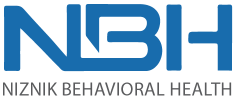Cognitive Behavioral Therapy for Substance Abuse
Despite common misconceptions, drug and alcohol abuse is often a symptom of deeper lying issues like emotional traumas and unaddressed mental health disorders. Child abuse and neglect, sexual assault, domestic abuse, and other life experiences can trigger extreme anxiety, depression, and other difficult emotional disorders which one may attempt to relieve through self-medication. Because substance abuse is an attempt to cope through self-numbing, an important factor to the recovery process is addressing these underlying causes of addiction.
For many, the prospect of such vulnerability is intimidating or daunting. It doesn’t have to be. Evidence-based, trauma-informed treatment in a safe, clinically supervised environment can help you begin the journey to a life free of illicit substances. One of the most effective means of treatment for people experiencing substance abuse and co-occurring mental health disorders is cognitive behavioral therapy.
What is Cognitive Behavioral Therapy?
Poor self-concept and negative thought patterns contribute to toxic coping mechanisms like illicit substance use and self-harm. Because of this, reassessing the correlation between your thoughts and actions is essential to overcoming addiction. Being able to recognize triggering thought patterns and correct them helps to break the psychological cycle of substance abuse.
Cognitive Behavioral Therapy, or CBT, has been proven effective in helping clients form new, more beneficial coping methods. Under the guidance of licensed and accredited mental health specialists, this approach focuses on a core belief that actions begin as a thought, and therefore adjusting behavioral patterns starts in the mind.
When it comes to addiction recovery treatment, Cognitive Behavioral Therapy begins with an assessment of your pattern of addictive behavior. By determining the common factors surrounding drug and alcohol abuse, you are able to identify your most prominent triggers. Stress, anxiety, boredom, depression, even celebratory events can prove dangerous for the recovery process if not properly addressed. By learning to recognize the mental sources of your triggers is enough to break the cycle so you can begin reclaiming control of your actions and reactions.
Beyond simply identifying the mental roots of addictive behavior, Cognitive Behavioral Therapy begins the process of replacing harmful behaviors with better habits. Addiction recovery is all about making the right decisions to keep you on the path of sobriety. Practicing mindfulness creates accountability, putting the choices back into your hands. While expecting perfection can be a set up for disaster, Cognitive Behavioral Therapy heightens self-awareness and optimizes your recovery experience.

